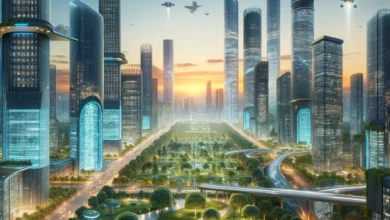Mastering the Art of East Asian History Assignments

Introduction
East Asia, encompassing countries like China, Japan, Korea, and Mongolia, boasts a rich tapestry of history, culture, and innovation. This article delves into the depths of this fascinating region, exploring its ancient origins, medieval legacies, modern transformations, and enduring cultural heritage.
You may checkout: professional East Asian History Assignment
Ancient East Asia
Ancient East Asia witnessed the birth of illustrious civilizations such as the Han, Tang, and Zhou dynasties, each leaving indelible marks on history. From the invention of paper and printing to the philosophical insights of Confucius, this era laid the foundation for East Asia’s cultural and intellectual prowess.
Medieval East Asia
The medieval period in East Asia was characterized by dynamic changes, including the rise and fall of powerful empires, the spread of Buddhism, and the flourishing of art and literature. Figures like Emperor Taizong of Tang and the samurai warriors of Japan symbolize the diversity and vibrancy of this epoch.
Modern Era in East Asia
The advent of the modern era brought unprecedented challenges and opportunities to East Asia. Colonial incursions, wars, and revolutions reshaped the geopolitical landscape, while economic miracles propelled countries like Japan and South Korea to global prominence.
East Asian Cultural Heritage
East Asia’s cultural heritage is a treasure trove of artistic masterpieces, literary classics, and architectural wonders. From the serene beauty of Chinese landscapes to the intricate elegance of Japanese tea ceremonies, this heritage reflects the essence of East Asian identity.
Role of Confucianism
Confucianism, with its emphasis on filial piety, social harmony, and moral cultivation, has profoundly influenced East Asian societies for millennia. Despite modernization and globalization, Confucian values continue to shape interpersonal relationships and governmental policies in the region.
East Asian Economic Growth
The post-World War II period witnessed remarkable economic growth in East Asia, culminating in the “Asian Tigers” phenomenon. Through innovation, hard work, and strategic planning, countries like Singapore and Taiwan transformed themselves into economic powerhouses, driving global trade and investment.
Challenges and Conflicts
Despite its economic successes, East Asia grapples with a myriad of challenges, including political tensions, territorial disputes, and socio-economic inequalities. Issues such as the North Korean nuclear crisis and maritime conflicts in the South China Sea underscore the region’s complex geopolitical dynamics.
Global Influence of East Asia
East Asia’s influence extends far beyond its borders, shaping global trends in technology, entertainment, and diplomacy. From K-pop and anime to Chinese infrastructure projects like the Belt and Road Initiative, East Asia’s cultural and economic reach is increasingly felt on the world stage.
Future Prospects
Looking ahead, East Asia stands at a pivotal juncture, poised to lead in areas such as renewable energy, artificial intelligence, and sustainable development. By fostering regional cooperation and embracing innovation, East Asia can navigate the challenges of the 21st century and emerge as a beacon of progress.
FAQs (Frequently Asked Questions)
- What are some notable UNESCO World Heritage Sites in East Asia?
- How did Confucianism influence governance in ancient China?
- What factors contributed to the economic success of Japan after World War II?
- What are the main sources of tension in the South China Sea?
- How has East Asian cinema influenced global film industries?
- What role did samurai warriors play in medieval Japanese society?
Conclusion
In conclusion, the professional East Asian History Assignment provides a fascinating journey through the annals of East Asian history, culture, and civilization. From ancient wonders to modern marvels, this region continues to captivate and inspire, leaving an indelible imprint on the world stage.



